Bloating
Struggling with bloating? Here’s what you need to know to find relief.
ALL TEST ARE ACCREDITED & REGULATED BY



What is bloating?
When you’re bloated, your stomach or abdomen can feel full and uncomfortable, or even painful.
This bloating happens when your gastrointestinal tract contains too much gas or air. Bloating can be mild, or more severe, and may present as:
– A visibly distended or swollen abdomen
– Feeling very full and uncomfortable
– Feeling of tightness in the abdomen
– Excess gas – belching and/or flatulence
– Rumbling or gurgling
There are several causes of bloating, so it’s important to diagnose the cause of your bloating and find out why it’s happening to you.

Why does bloating happen?
Prolonged periods of bloating could indicate an underlying health problem, if so you should see your GP.
Possible causes can include:
Irritable bowel syndrome (IBS diagnosis)
Ulcerative colitis, a form of inflammatory bowel disease (IBD), where the inner lining of the large bowel is inflamed and develops ulcers
Crohn’s disease, the other form of IBD, where some parts of your colon are inflamed
Too much bacteria in your small intestine (called small intestinal bacterial overgrowth, or SIBO)
Gastroesophageal reflux disease
Food intolerances, especially lactose or fructose intolerance
Producing too much gas (dysbiosis and fermentation)
Weight gain
Stress or anxiety
Delays in your food and drink moving on from your stomach (called gastroparesis)
Eating too quickly, so that you swallow too much air (called aerophagia)

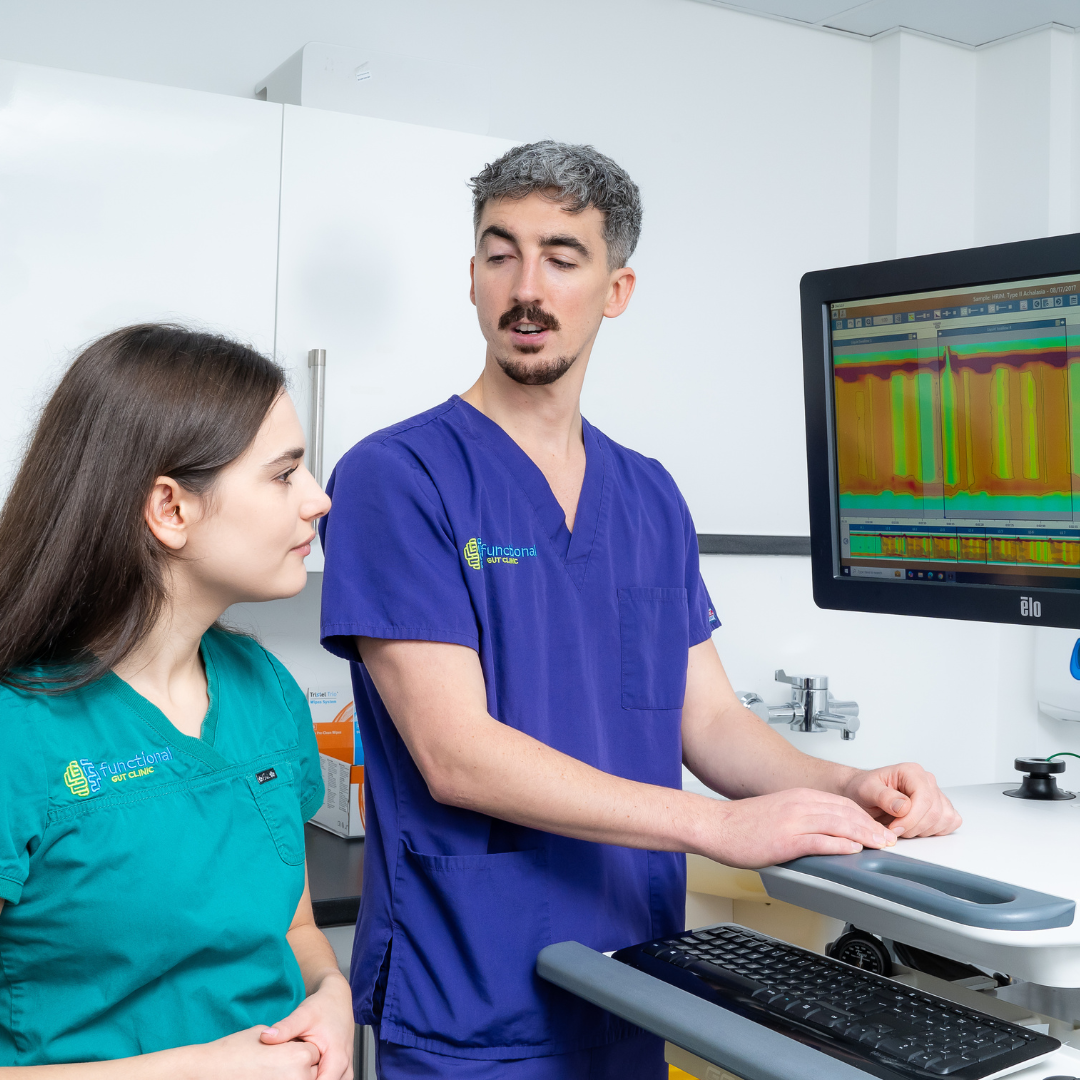
Diagnosing bloating
Feeling bloated is no fun, but once you know what’s going on you can start to manage your symptoms and the underlying causes.
Testing options:
At the Functional Gut Clinic, we can run the following tests to diagnose the causes of bloating:
Gastric emptying test– which measures how quickly food leaves your stomach
Carbohydrate malabsorption breath test– which finds out if you have certain food intolerances (lactose or fructose)
Small intestinal bacterial overgrowth (SIBO) breath test– which finds out if you have an overgrowth of bacteria in your small intestine (called SIBO)
Oesophageal manometry– which measures the function of your oesophagus (food pipe)
24-hour pH impedance monitoring– which looks at whether you have any reflux
Colonic transit study-a non-invasive test which looks at how long it takes for faeces to pass through your bowl
Learn more about bloating

What Causes Acid Reflux?
Gastroesophageal reflux disease (GERD), or acid reflux, occurs when your stomach acid rises up into your oesophagus and throat. You might notice a sudden bout of heartburn – a burning sensation in the centre of your chest. If so, you might have acid reflux.
But what causes acid reflux? We often focus on the symptoms and how to treat the condition. However, understanding the causes and triggers of acid reflux can help combat any painful episodes. Read on to learn more.
What Causes Acid Reflux?
Acid reflux refers to the movement of stomach acid into the oesophagus, throat, and even mouth. Usually, the lower oesophageal sphincter (LOS) – a ring of muscle separating the stomach and oesophagus – acts as the barrier, preventing backflow. However, if the LOS is opened, the acid can backflow.
So, what causes acid reflux? Well, there tend to be two mechanisms:
There's an increase in acid production. Certain foods, medications, or lifestyle habits trigger stomach acid production. When reflux occurs without high levels of acid, you may not even notice. But as the pH level drops, your heartburn increases.
The LOS relaxes and becomes looser. Like any sphincter, the LOS must maintain its muscle tone to function. If it relaxes or is overcome by the pressure in your stomach, then the stomach contents can easily backflow into the oesophagus. Some substances naturally relax the LOS, while other habits increase your stomach pressure.
Remember, each person is different. You might have a reasonably strong LOS. However, your stomach acid production is so high that whatever backflow occurs will cause serious discomfort. Understanding your underlying physiology is crucial to solving the problem.
What Triggers Acid Reflux?
What causes acid reflux is only half the battle. Unfortunately, life doesn't easily separate these items into either category. Often, triggers will cause a combination of both – increasing stomach acid and relaxing the LOS.
Acid reflux triggers fall into a few categories:
Diet
Your diet is the primary factor affecting your acid reflux. Eating certain foods can increase acid production and relax your LOS. These foods include:
Spicy, fatty, or greasy foods
Acidic fruits and vegetables, such as tomatoes, onions, and citrus fruits
Coffee and other sources of caffeine, including chocolate
Alcohol
Carbonated drinks
Peppermint or spearmint
Your portion size is also important. Large portions increase your stomach pressure, forcing the LOS to open. When combined with acid-triggering foods, it can lead to severe acidity attacks.
Medications
People are often surprised to learn that their medications are behind their acid reflux symptoms. Certain medications can cause noticeable episodes of acid reflux. Look out for: NSAIDs (e.g., ibuprofen, aspirin)
Calcium Channel Blockers (e.g., amlodipine)
Anticholinergics (e.g., oxybutynin)
Bisphosphonates (e.g., alendronate)
Certain Antibiotics (e.g., tetracycline)
Iron Supplements
Potassium Supplements
Progesterone
Some Antidepressants (e.g., amitriptyline, SSRIs) Your doctor should always explain the potential side effects before starting the medication. If you notice any changes, speak to your doctor for further details.
Smoking
Smoking can aggravate the respiratory system and boost the production of stomach acid. Specifically, nicotine weakens the muscles of the LOS, aggravating symptoms of reflux and heartburn.
Research from 2016 indicated that adults who gave up smoking experienced a 44% decrease in acid reflux symptoms over a year, in stark contrast to a mere 18.2% reduction in those who did not quit smoking.
Stomach Pressure
Stomach pressure covers several acid reflux triggers. Pregnancy is the most obvious factor in increasing your stomach's pressure. As the baby grows, your uterus expands, pressing against the stomach and forcing the LOS to open.
Rising levels of progesterone and oestrogen can also relax the LOS, allowing it to open more easily. As a result, pregnant women often complain of frequent acid reflux attacks.
The other factor increasing stomach pressure is obesity. The more weight you have, the greater your stomach pressure. Combined with the fact that people who are overweight or obese usually eat a diet high in fat, a known trigger for acid reflux, it's not hard to see why reflux would be such a problem here.
Hiatus Hernia
A hiatus hernia occurs when a portion of the stomach pushes up through the diaphragm into the chest cavity. This displacement disrupts the diaphragm's role in supporting the LOS, leading to the unimpeded backflow of stomach acids and food into the oesophagus.
People notice that their symptoms get worse when bending over or lying down. It's often treated surgically – but your doctor will need to perform a full evaluation to determine the extent of the issue.
Getting Tested for Acid Reflux
Does this sound familiar? If so, you might have acid reflux. Here at The Functional Gut Clinic, we offer comprehensive testing, including 24-hour reflux monitoring and oesophageal manometry to assess your LOS’s function. Our experienced team will explain your results thoroughly and guide you on the next steps. Confirm your GERD symptoms with our expert help. Contact us today for more information.
Hear from people we’ve helped, just like you.
"Very professional while welcoming and friendly"
"The manner and demeanour of all staff from reception to people carrying out the test was very professional but welcoming and friendly. Atmosphere is very relaxed and all instructions clear and concise."
London Patient

"Highly recommend this"
"Thanks to Dr Hobson and everyone at the Functional Gut Clinic. The whole team is very kind and generous and they are doing things that are cutting edge and they actually get results."
Manchester Patient

"Highly recommend this"
"After stopping my lansoprazole, every time I had a warm drink, I could feel it burn all the way down to my stomach. Thank you to Sam for making me feel at ease." - Manchester Patient

"My experience could not be better"
"Pleasant and knowledgeable staff that made the experience more enjoyable than it should be!" - London Patient

"Very friendly and knowledgeable"
"An excellent service from beginning to end. I would recommend to anyone who was considering having testing done. Very friendly and knowledgeable!" - Manchester Patient

"Very kind and helpful"
"It was also great to have time to talk to the clinicians – very important when you have problems. Reception staff also very kind and helpful." - Manchester Patient

Are you experiencing any other symptoms
Symptoms are often closely connected. Find out more below.
Reflux
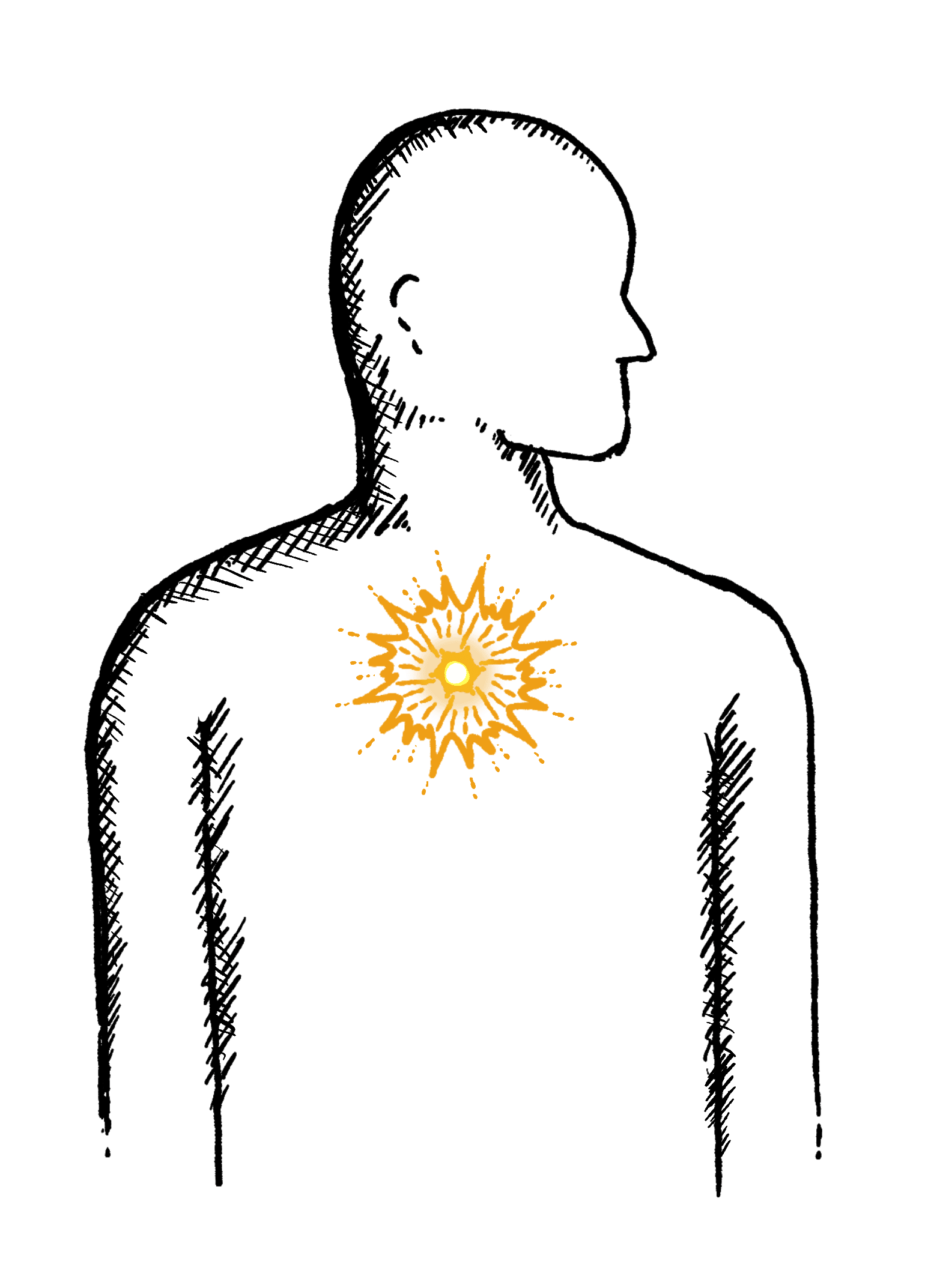
Burning mid-chest, worse when bending or lying down
Constipation
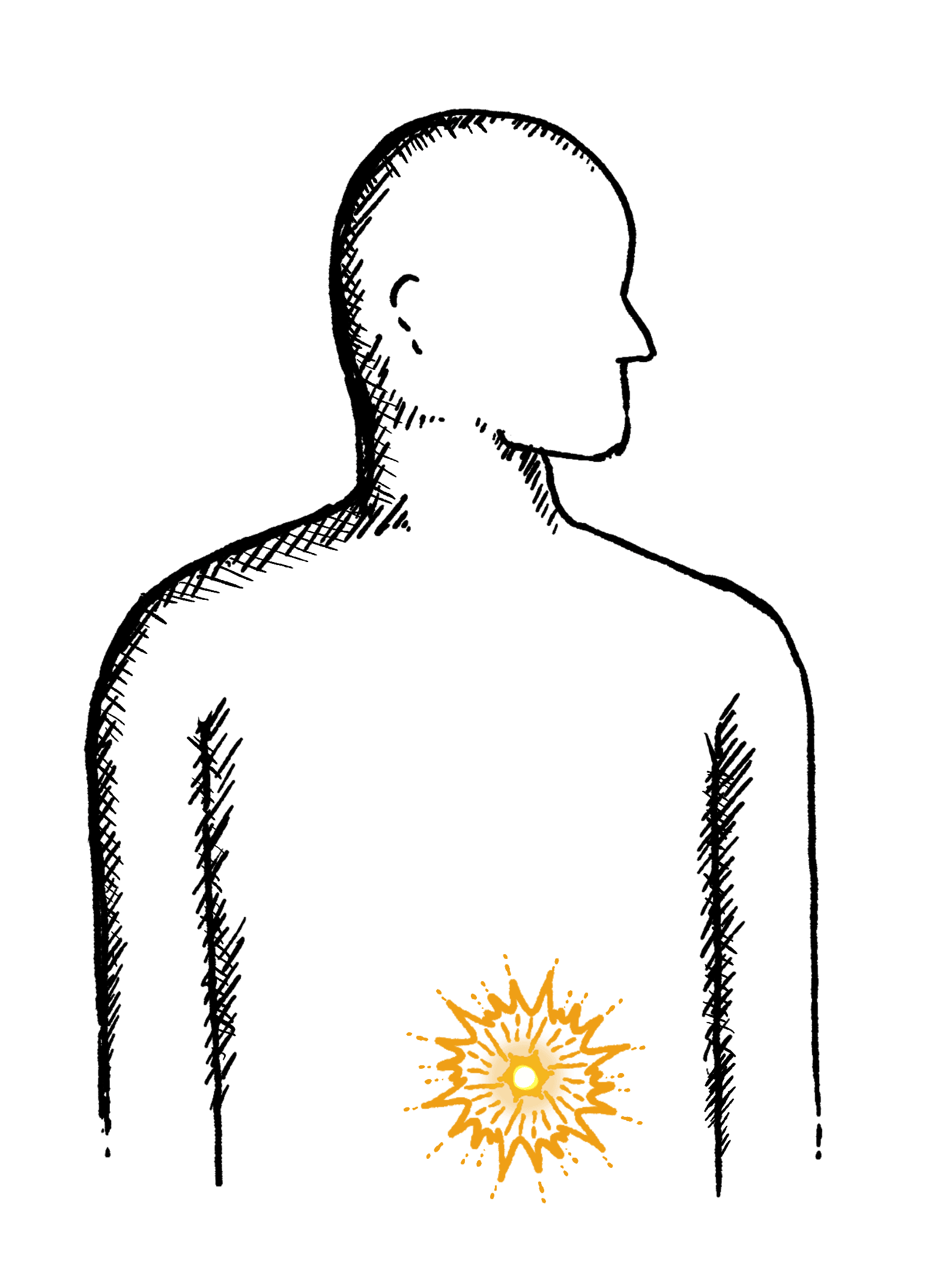
Difficulty going to the toilet, unusual stools, often with stomach ache or intestinal cramps, bloating, nausea or appetite loss
Heartburn

A burning pain in your chest, just behind your breastbone.
The pain is often worse after eating...
Regurgitation
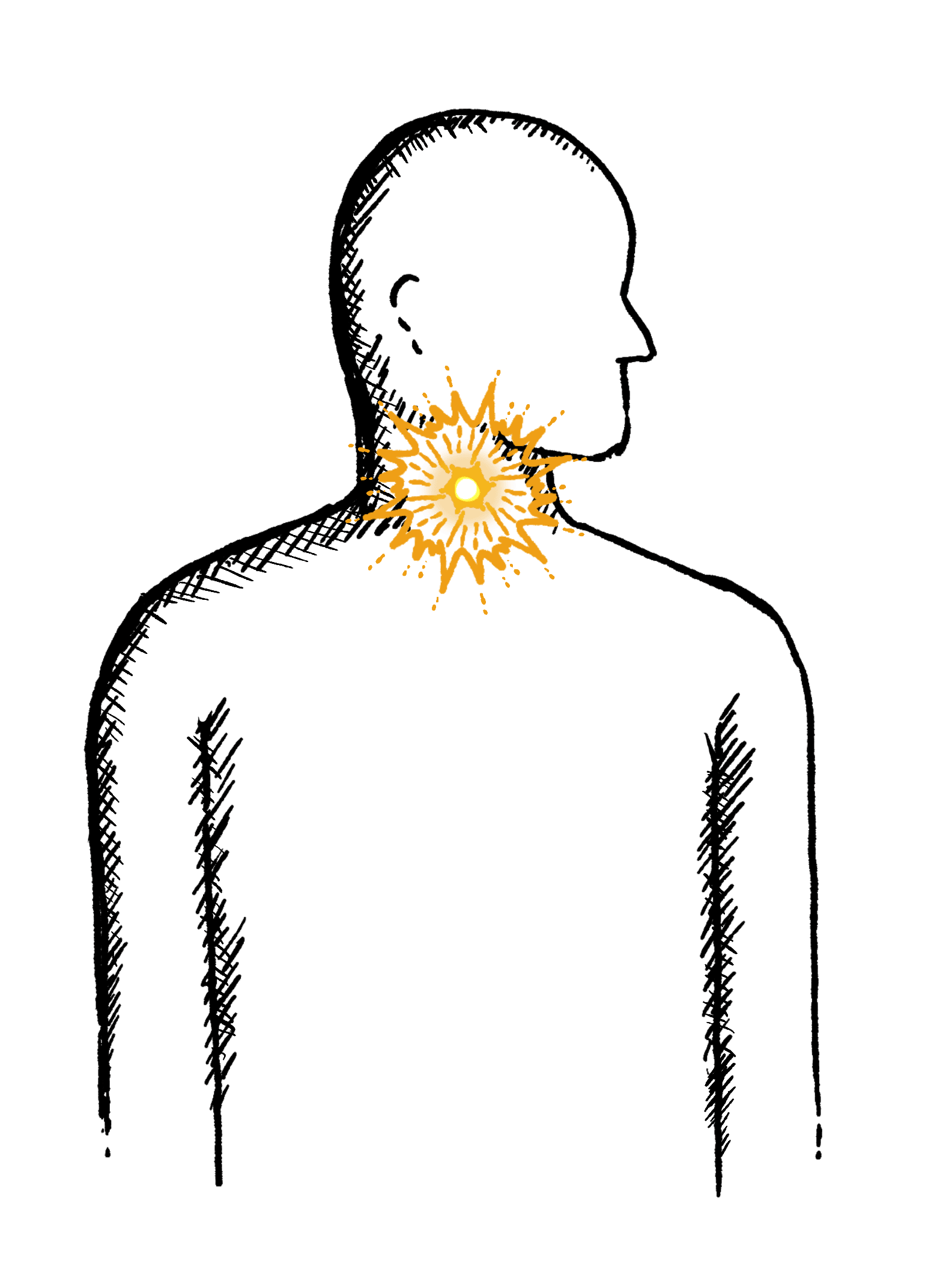
Bringing food or drink back up, difficulty swallowing, feeling that food or drink is stuck in your throat, horrible taste in your mouth
Swallowing Issues

Dysphagia - difficulty swallowing, feeling that food or drink is stuck in your throat, horrible taste in your mouth
Diarrhoea
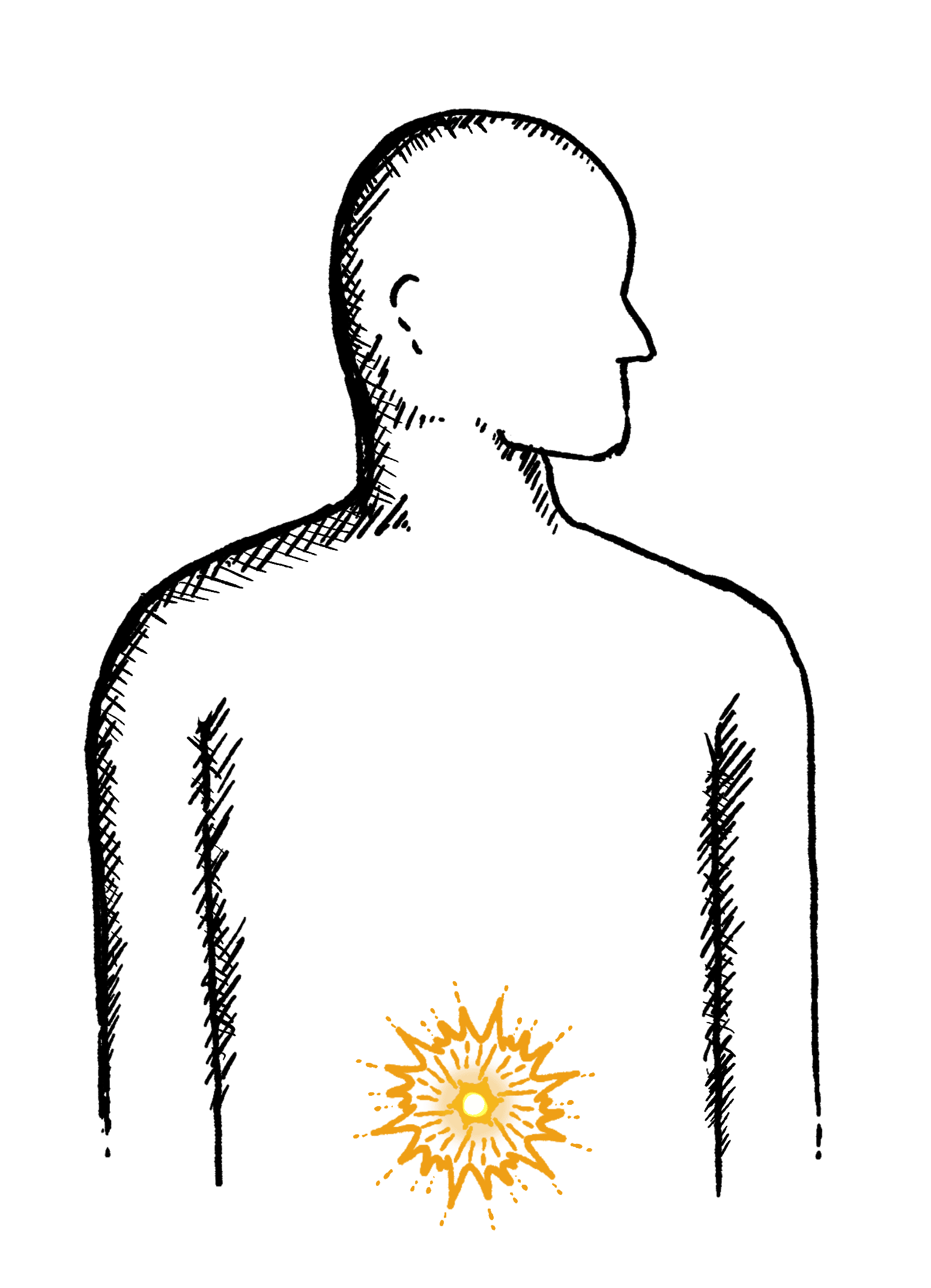
Loose or explosive stools, can’t get to a toilet in time
Abdominal Pain
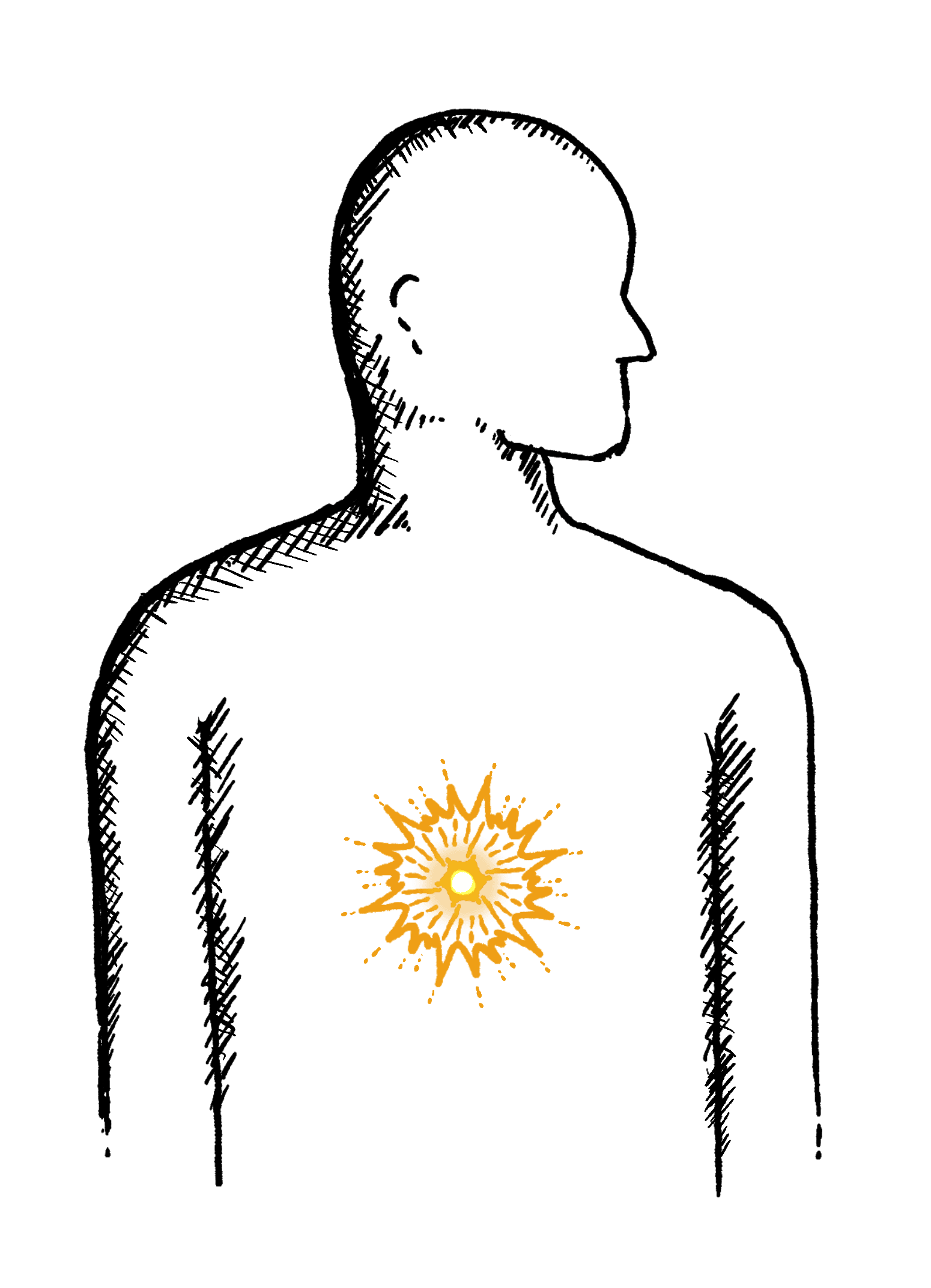
Cramps; sharp or dull pain, Bloating, Excessive belching, Nausea or vomiting
Faecal Incontinence

Stools leak unexpectedly, Can’t get to a toilet in time
IBS

Abdominal pain or cramping, bloating, changes in bowel habits and urgency, gas

